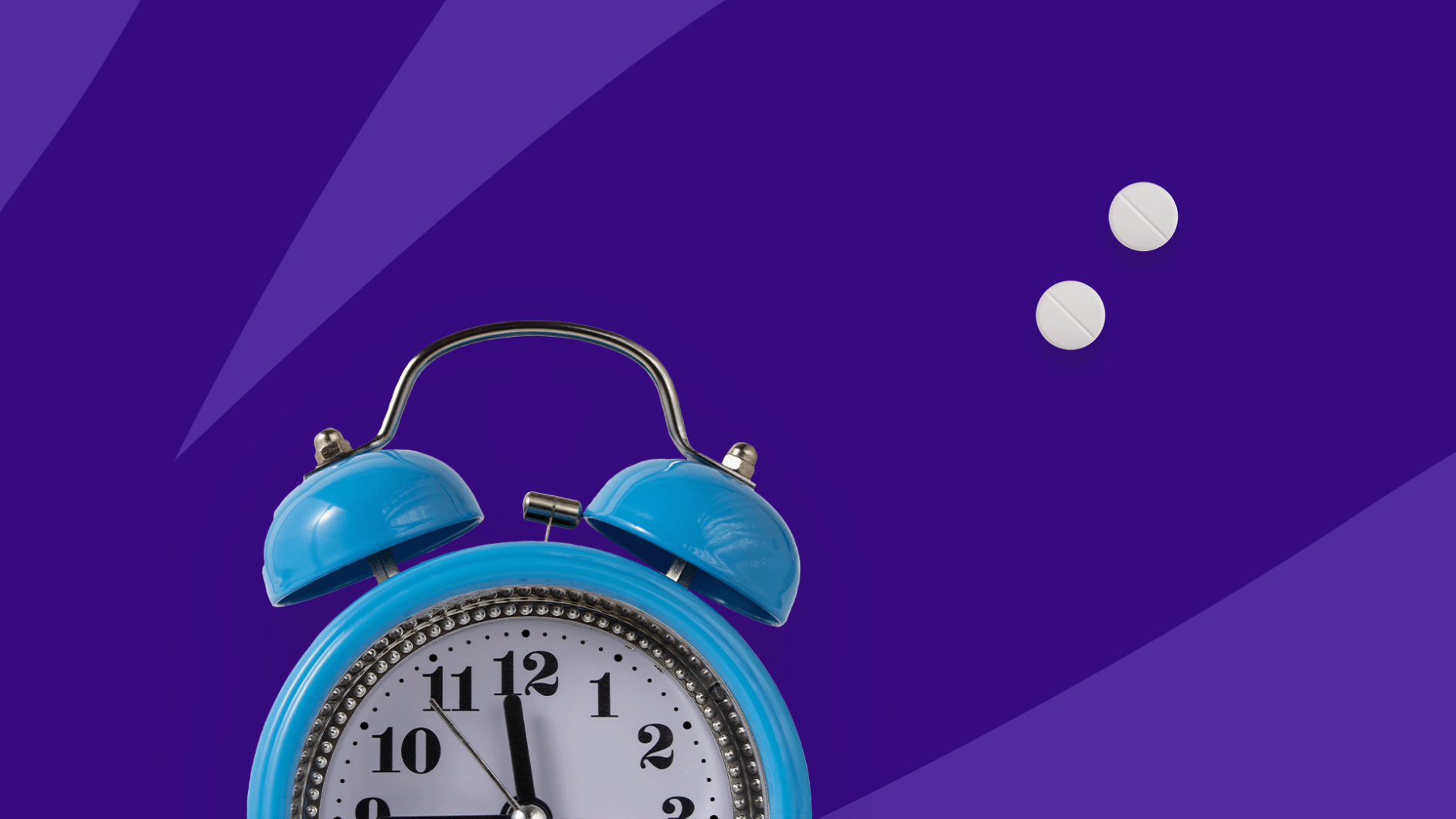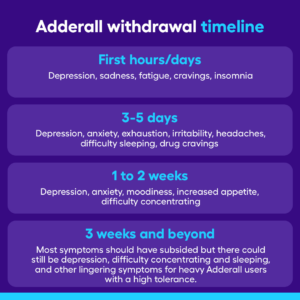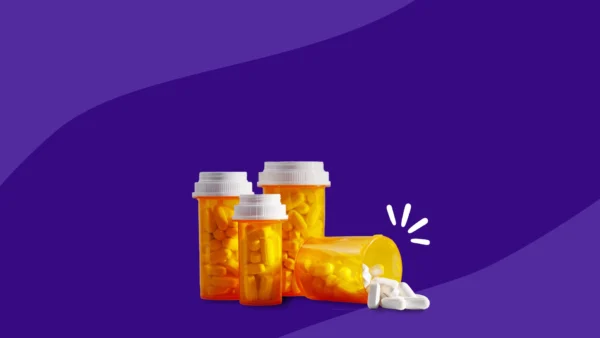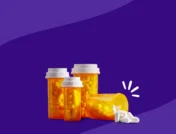Key takeaways
Adderall withdrawal typically starts within a few hours and lasts a few weeks; people with a high tolerance to the drug may feel the effects for longer
The Adderall withdrawal period is also more difficult for people who have experienced Adderall abuse versus those who took it as prescribed.
Adderall withdrawal symptoms include mood swings, depression, trouble sleeping, headaches, cravings, and more.
Going to a treatment center and working with medical professionals is vital for short-term relief. In the long-term, it is important for people with an Adderall addiction to work with a therapist to address the underlying cause of their substance abuse.
If recommended by a healthcare provider, people can purchase short-term relief medications at a lower cost by using a SingleCare prescription discount card.
Dextroamphetamine/amphetamine (Adderall and Adderall XR) are prescription drugs that are primarily used to treat health conditions such as attention deficit hyperactivity disorder (ADHD) and narcolepsy. However, they are sometimes misused when people take higher than prescribed doses, which may lead to addiction to their effects, such as increased focus and extra energy. Further, some adults with ADHD may also deal with substance abuse, in which the two conditions can intersect.
But what is Adderall, exactly, and how does it work? Adderall is a controlled substance prescription stimulant that combines amphetamine and dextroamphetamine, two central nervous system (CNS) stimulants. It increases dopamine and norepinephrine, both of which are neurotransmitters.
As with any form of drug abuse or substance abuse, the withdrawal process from an Adderall addiction can be tough. An Adderall detox, in particular, can lead to common symptoms such as depression, mood swings, anxiety, headaches, cravings, nightmares, and trouble sleeping. By the third week or so, most patients typically experience significant improvement in their condition. However, people who have taken higher doses may experience withdrawal symptoms for an extended period.
Read on for the specificities of the withdrawal timeline and medical advice regarding both short- and long-term treatments to consider.
RELATED: What you should know about prescription Adderall
How long does Adderall withdrawal last?
The Adderall withdrawal process happens in stages, with varying symptoms at each phase.
Adderall withdrawal timeline
First, a quick note on Adderall use versus Adderall abuse: “Withdrawal symptoms for patients who take Adderall as prescribed look very different than for those who are addicted to it recreationally,” says Dr. Jason Kellogg, MD, a psychiatrist and the medical director of Hotel California by the Sea.
When taken as prescribed, withdrawal period symptoms may include fatigue, mild mood changes, and re-emerging symptoms of ADHD or ADD. These patients will also come off the medication slowly and with a prescribing physician, Dr. Kellogg says, instead of having to undergo an intense and sudden medical detox.
When it comes to patients who have an Adderall addiction, withdrawal symptoms may be more intense. Those symptoms will also look slightly different depending on where the patient is in the withdrawal process. The chart below highlights the symptoms for each time frame, as evidenced by a couple of sources:
RELATED: Adderall alternatives: What can I take instead of Adderall?
Adderall withdrawal symptoms:
Adderall withdrawal may entail a variety of psychological symptoms and physical symptoms, such as:
- Depression
- Irritability
- Anxiety
- Fatigue or intense sleepiness
- Concentration problems
- Appetite changes
- Slow reactions and movements
- Aches and pains
- Agitation
- Nightmares
Thankfully, these side effects of withdrawal are usually not life-threatening, though being in a professional detox space with medical supervision can help as it prevents relapse and increases comfort.
It’s important to note that each person’s experience with stimulant withdrawal is different, too. Outcomes depend on a variety of factors, from the length of the drug abused, the amount of drug consumed, additional health conditions to the individual’s genetics, and more.
As mentioned earlier, different symptoms may appear in different withdrawal stages, while others may exist throughout the withdrawal process. For example, depression will likely be present all the way through, while concentration problems may show up a week or two in. Additionally, most symptoms subside around the three weeks but may continue past that, especially for heavy users.
Dr. Chad Elkin, MD, a board-certified doctor in addiction medicine and internal medicine and the founder and president of National Addiction Specialists, refers to the stages as having “acute” or “post-acute” symptoms.
“Acute symptoms last up to a week and can include somnolence, fatigue, irritability, trouble concentrating, muscle aches, headaches, and depression,” he says. “Post-acute symptoms occur after one week and can last weeks to months. Post-acute symptoms include depression, anxiety, insomnia, and paranoia, among others.”
How to treat Adderall withdrawal symptoms
Treating Adderall withdrawal symptoms and substance abuse in both the short- and long-term periods is in patients’ best interest. In the short term, the focus is more on physical comfort, whereas, in the long-term, patients may want to address the underlying concerns behind their Adderall abuse.
Short-term relief
Dr. Elkin says no medications or studies approved by the U.S. Food and Drug Administration (FDA) support specific medications for Adderall withdrawal. However, don’t worry because it is possible to treat individual symptoms.
Dr. Elkin recommends:
- Treating depression with antidepressants, such as mirtazapine(He also warns about how some antidepressants can interact with Adderall and should be avoided in case the person gets back on Adderall.)
- Treating insomnia with melatonin, antihistamines, the anti-hypertensive clonidine, or trazodone
- Treating nightmares with prazosin
- Treating muscle aches and headaches with ibuprofen and acetaminophen
Patients should not do this alone. During the beginning of withdrawal, Dr. Kellogg recommends a medically assisted detox. He says it’s “extremely beneficial, as physicians can monitor patients and adjust their medications to meet their needs.”
Examples of medications they might give, he continues, include muscle relaxers for spasms, anxiety medication, sleeping aids, and pain relievers.
Working with medical professionals at detox programs and treatment centers can be crucial, especially in the first stages of addiction recovery. Inpatient treatment can help with acute withdrawal symptoms, for example, and is especially necessary if you or your loved one experiences suicidal thoughts. Once that’s addressed, an outpatient treatment program or addiction center may be an option.
Long-term treatment
While short-term relief is helpful, addressing the root issue in the long-term is important, too. A drug addiction or substance use disorder is a mental health condition in which anyone who’s experiencing it—you or a loved one—needs and deserves support and a treatment plan.
“Long-term treatment options for Adderall withdrawal involve addressing underlying issues that may contribute to substance abuse,” Dr. Kellogg says. Therapy is a major example; he suggests cognitive behavioral therapy (CBT) to address addictive behaviors and promote coping strategies.
Dr. Elkin agrees psychosocial therapy is important. He suggests individual and group counseling, CBT, contingency management, and motivational interviewing as first-line treatments.
Dr. Kellogg also believes treatment should be holistic, which is to look at the entire individual instead of just their substance use. “This is extremely beneficial for those whose addiction may be fueled by multiple factors,” he says. “Some patients benefit from treating any co-occurring mental health disorders, such as anxiety or depression.”
Ultimately, individualized and multi-faceted treatment is key. “There is no ‘one size fits all’ treatment for Adderall addiction,” Dr. Kellogg says.
Sources
- Treatment for amphetamine withdrawal, Cochrane Library (2009)
- Amphetamine withdrawal management, Government of South Australia (2024)
- Adderall withdrawal and detox, Addiction Center (2024)












